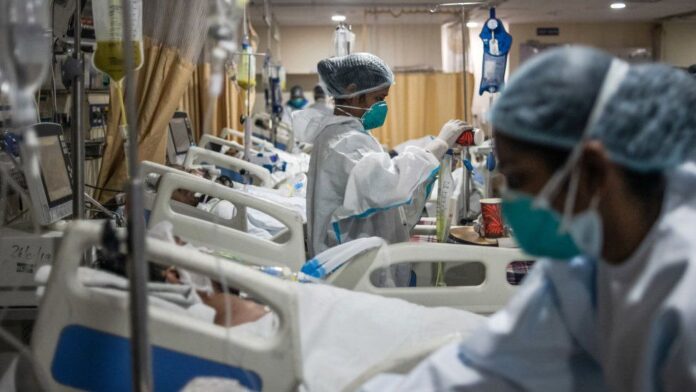Some cases of black fungus infections have been recorded in people recovering from Coronavirus, most of them in India.
Black fungus is an infection with a kind of fungi found in nature around us, which attack the tissues of the human body only if the immune system is weakened or there is damaged tissue.
Therefore, it is not considered an infectious disease in which the patient poses a danger to the healthy people around him
Until last March, the number of cases recorded globally was low, and of them 70% were in India, but scientific reports indicate that the incidence rate now clearly exceeds that.
What Makes Black Fungus Infection More Common in India?
Statistics recorded before the spread of the Covid-19 pandemic indicate that black fungus infection is more prevalent in India compared to other countries.
It is estimated that it affects 14 out of every 100,000 people in India compared to 0.06 people per 100,000 people in Australia, for example.
Scientists attribute this difference to the variation in the spread of this type of fungus in different environments.
As it appears, according to the previous example, that the fungi that cause black fungus infection are more widespread in the Indian environment than they are in the Australian environment.
What is Mucormycosis?
Black fungus is an infection with a kind of fungi, also called mucormycosis.
The microbes (fungi) that cause black fungus infection are found in the surrounding landscape for example in soil, rotting food, bird and animal droppings, construction sites, and damp environments.
When the black fungus is grown in lab dishes, it grows rapidly and has a wrinkled appearance of brown or black color.
These fungi cannot attack the strong immune system, but they only attack the body if the immune system is weakened by drugs such as cortisone or diseases.
How Does Black Fungus Infection Occur?
Black rot infection occurs in people with weak immunity due to drugs or diseases that weaken immunity, and this happens with the entry of microbe particles (fungi) into the body through inhalation or ingestion with food or valleys, and infection may occur due to contamination of wounds with fungus.
But the method of infection by inhalation is the most common.
In fact, we inhale many mushrooms and microbes suspended in the air every day, but our immune and healthy respiratory systems can protect us from infection with these foreign germs.
But the affected lungs and damage to their tissues with weak immunity, which may accompany severe cases of Covid-19 infection, may stimulate the proliferation of fungus granules in the respiratory tracts or sinuses, from which they spread to different body tissues.
Diabetes and weight gain are among the risk factors that increase the lungs’ vulnerability to Covid-19 infection, and India has recorded diabetes as one of the risk factors that want exposure to black mold infection.
The nose and sinuses are the areas of the body most affected by the black rot fungus, and from these areas it may spread to the eyes and threaten to lose vision, or to the brain, causing headache and convulsions.
Also, contamination of wounds with black fungus causes dangerous situations, especially in war and disaster conditions.

